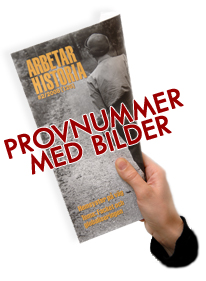Abstracts for issue no 141
Könspolitik mellan kamp och samförstånd. Kommunals kongressdebatt om kvotering / Kristin Linderoth
Â
ABSTRACT – BETWEEN STRUGGLE AND AGREEMENT Until the beginning of the 21st century women were under-represented in the Swedish Municipal Workers’ Union (Kommunal), even though they formed a majority of eligible employees since th 1950s. Demands for affirmative action were intended to address this problem. Affirmative action was discussed at Kommunal’s congresses between 1988 and 1994 but was never realized. In the debate women’s lack of representation was attributed to tradition, and thus to factors external to the organization. The solutions presented are rhetorical, such as a general emphasis on the importance of equal representation. The faith in gender equality as a success story independent of concrete reforms is connected to an emphasis on consensus between men and women, characteristic of Swedish gender equality ideology. Conflicts of interests are not to be articulated. Instead, the unequal distribution of power is expected to wither away by itself. The demand for affirmative action challenges this ideology, by proposing an immediate redistribution of power. A possible reason for the sensitivity to the demand could be that as an organization of which 80 percent were women, Kommunal was in any case seen to be a deviation from what is perceived to be the normal order of things. To adopt affirmative action would thus have been too controversial.
Efter Spanien. De svenska spanienfrivilligas hemkomst / Bento Peix Gerdart
 ABSTRACT – THE RETURN OF THE SWEDISH VOLUNTEERS The 500 or so »Spain fighters», as the Swedish volunteers in the International Brigades were called in Sweden, found themselves in a difficult situation following their return home from the Spanish battlefields. They were generally given a warm welcome on their return home in December 1938, unlike most of their comrades from other European countries. The Swedish labour movement organisations greeted them as heroes and the authorities refrained from applying the Parliament Act, whereby Swedish nationals were banned from participation in the Spanish civil war. However, the situation soon changed during the Second World War years. Most of the volunteers had to endure severe health and economic problems, as well as the ill-will of some of their former employers. Existing police records show that all of them were subjected to close control by the Security Police, as a consequence of their engagement with and commitment to international communism. In Swedish government circles at the time this was considered one of the greatest dangers to peace and democracy. The volunteers themselves remained faithful to their antifascist ideals, as shown by the active participation of many of them in the Allied war effort and in their engagement in protest actions against fascism.


